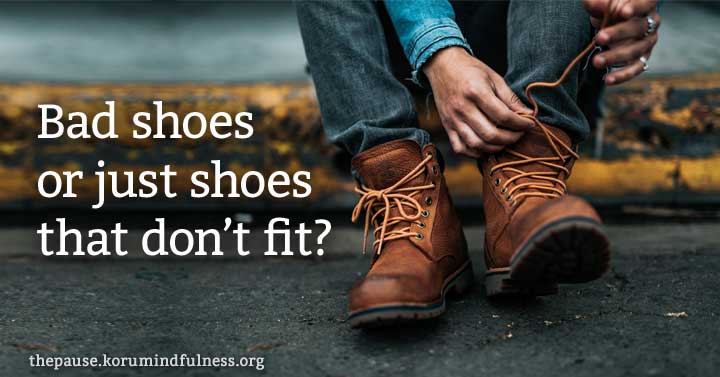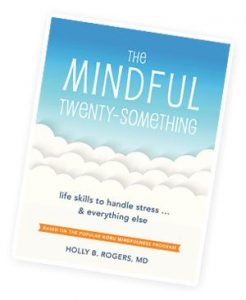
I ordered some shoes online last week. For better or worse, I always read the product reviews when I shop online. As I was scrolling through the reviews of shoes, I noticed a trend. Many of the reviews were some version of “these shoes are terrible,” followed by a fairly long explanation about how they were too tight in the toes or too wide in the heel.
The reviewers seemed kind of upset about it, like it was stressing them out they’d gotten these “terrible” shoes. It made me think about how natural it is to make judgments, and also, the cost of doing it too much.
Our minds really like to make judgments. They do it all the time about pretty much everything. If something doesn’t work as we expect it to, it’s “terrible” or it just plain “sucks.” If we do something wrong then we are “stupid.” If someone says something we don’t agree with, they are “stupid.”
The problem with these automatic judgments is that they can be a bit toxic. There is at least frustration involved, as expressed by the shoe-reviewers. At worst there is down right anger, self-loathing, and despair.
We’re on Instagram! Make sure to connect with us for tips and inspiration!
The thing is, these judgments aren’t really necessary. With a fairly subtle shift, judgments become observations. I can observe that the shoes are too tight on my toes, without the shoes having to be “terrible.” I can observe that I made a mistake without calling myself “stupid.” I can notice I feel differently than you about an issue, without labeling you “stupid.”
The benefit of making this shift, is that then I feel better. I like myself better, I like you better, and I don’t harbor hard feelings for the maker of those darn shoes.
There’s much less stress involved in observing the way things are when we don’t add criticism and blame. If you don’t waste time apportioning blame, you can settle right into problem solving:
Guess I’ll order a different size of those shoes I really like.
Yeah, it wasn’t helpful for me to say that. I’ll hold my tongue next time.
It takes practice to observe more and judge less. A good way to practice is to spend a few minutes a day doing a labeling (aka “noting”) meditation. In labeling meditation we get familiar with our thought patterns by patiently noticing and labeling the types of thoughts we have. There’s a free guided labeling meditation for you to try at student.korumindfulness.org.
Do you have a strategy for relaxing in the present moment? Share it below .
